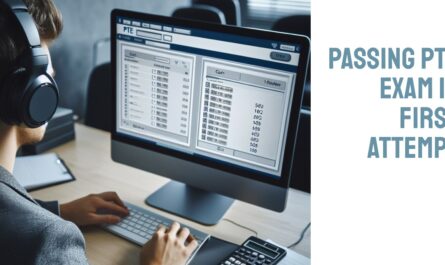With the arrival of GMAT Focus, many aspiring MBA candidates are now faced with a new decision—should they take the traditional GMAT or opt for this updated version? Both tests assess your readiness for business school, but they come with key differences in structure, timing, and scoring. Understanding these differences can help you choose the exam that aligns with your strengths and future goals.
Let us uniquely compare GMAT Focus vs. GMAT and help you determine which is the better fit for your journey to business school.
Key Differences Between GMAT and GMAT Focus
While both tests evaluate similar skills, GMAT Focus has streamlined the exam to better align with the demands of modern business education. Here’s a breakdown of the key changes:
GMAT
- Consists of 4 sections: Quantitative, Verbal, Integrated Reasoning, and Analytical Writing Assessment (Essay)
- Total exam time: 3 hours 7 minutes
- Score range: 200-800 (Quant and Verbal sections contribute to the total score)
GMAT Focus
- Features 3 sections: Quantitative, Verbal, and Data Insights
- Total exam time: 2 hours 15 minutes
- Score range: 205-805 (all three sections equally contribute to the overall score)
This difference in structure means that GMAT Focus places greater emphasis on data analysis and critical thinking, while the traditional GMAT includes sections on integrated reasoning and essay writing.
GMAT and GMAT Focus Exam Structure
When deciding between the two exams, the structure of each should play a major role in your decision.
- GMAT: If you are looking for a comprehensive test that evaluates a broad range of skills, including reasoning and written communication, the traditional GMAT offers that through its Integrated Reasoning and Analytical Writing sections. These can be beneficial for students who want to showcase problem-solving and argumentation skills.
- GMAT Focus: On the other hand, if you prefer an exam that focuses more on data analysis and decision-making, GMAT Focus is designed to meet the evolving demands of business programs. The newly introduced Data Insights section emphasizes analytical skills, which are becoming increasingly important in the business world.
Time Efficiency
One notable difference between the two exams is the time commitment. The GMAT Focus is significantly shorter, at 2 hours 15 minutes, compared to the 3 hours 7 minutes required for the traditional GMAT. For many candidates, this could be a deciding factor.
- If you are someone who performs better in shorter, more focused sessions, the GMAT Focus could be the ideal option. The reduced exam time means less overall fatigue and a sharper focus on key areas.
- On the other hand, if you prefer having a little extra time to think through your responses, the traditional GMAT offers a longer format with more comprehensive content. This might be more suitable for those who like to take their time with problem-solving.
Flexibility
GMAT Focus offers increased flexibility when it comes to choosing the order in which you take the sections. With six different section orders available, you can customize the test to fit your strengths and preferences. This flexibility could help ease test-day anxiety, allowing you to tackle the sections you feel most confident in first.
In contrast, the traditional GMAT offers three section order options. While this still provides some flexibility, it is more limited compared to the newer format.
Scoring and Evaluation
The scoring systems of both exams are another key distinction. The traditional GMAT’s total score is based on the Quantitative and Verbal sections, while Integrated Reasoning and Analytical Writing are scored separately.
In GMAT Focus, however, all three sections—Quantitative, Verbal, and Data Insights—contribute equally to the overall score, ranging from 205 to 805. This streamlined scoring system may appeal to candidates who prefer an exam that equally values all sections rather than placing more weight on specific areas.
Which Exam Should You Choose?
Here are a few pointers to help guide your decision:
- If you are aiming for a well-rounded evaluation that includes written communication and broad reasoning skills, the traditional GMAT might be the better option.
- If you are drawn to data-heavy roles or want a more focused and modernized exam experience, GMAT Focus could be your preferred choice.
- For those who appreciate time efficiency and a more concise test structure, the GMAT Focus may offer a better fit.
- If you have already invested significant time in preparing for Integrated Reasoning or Analytical Writing, you may want to take the traditional GMAT before it is phased out in early 2024.
Preparing for GMAT Focus
If you decide to go with GMAT Focus, make sure to dedicate extra time to improving your data interpretation skills. The Data Insights section will play a significant role in your overall score, and it is important to practice thoroughly to excel in this area.
For candidates opting for the traditional GMAT, balancing preparation across all four sections will be key, especially since Integrated Reasoning and Analytical Writing are scored separately.
As business schools continue to evolve, so do the tests that measure applicants’ potential. GMAT Focus represents a shift toward the skills that are increasingly valued in today’s data-driven business environment. However, the traditional GMAT still holds value for those seeking a more comprehensive evaluation of their abilities.
Ultimately, your choice between the GMAT and GMAT Focus should reflect your strengths, goals, and preferred test experience. Whichever you choose thorough preparation and understanding the structure of the exam will help you achieve your best possible score. Earlier, GMAT classes were mostly online, but now students can benefit from both physical and online support in establishments of GMAT classes in Nagpur, Bhatinda, Raipur, Thrissur, and many more across India.




